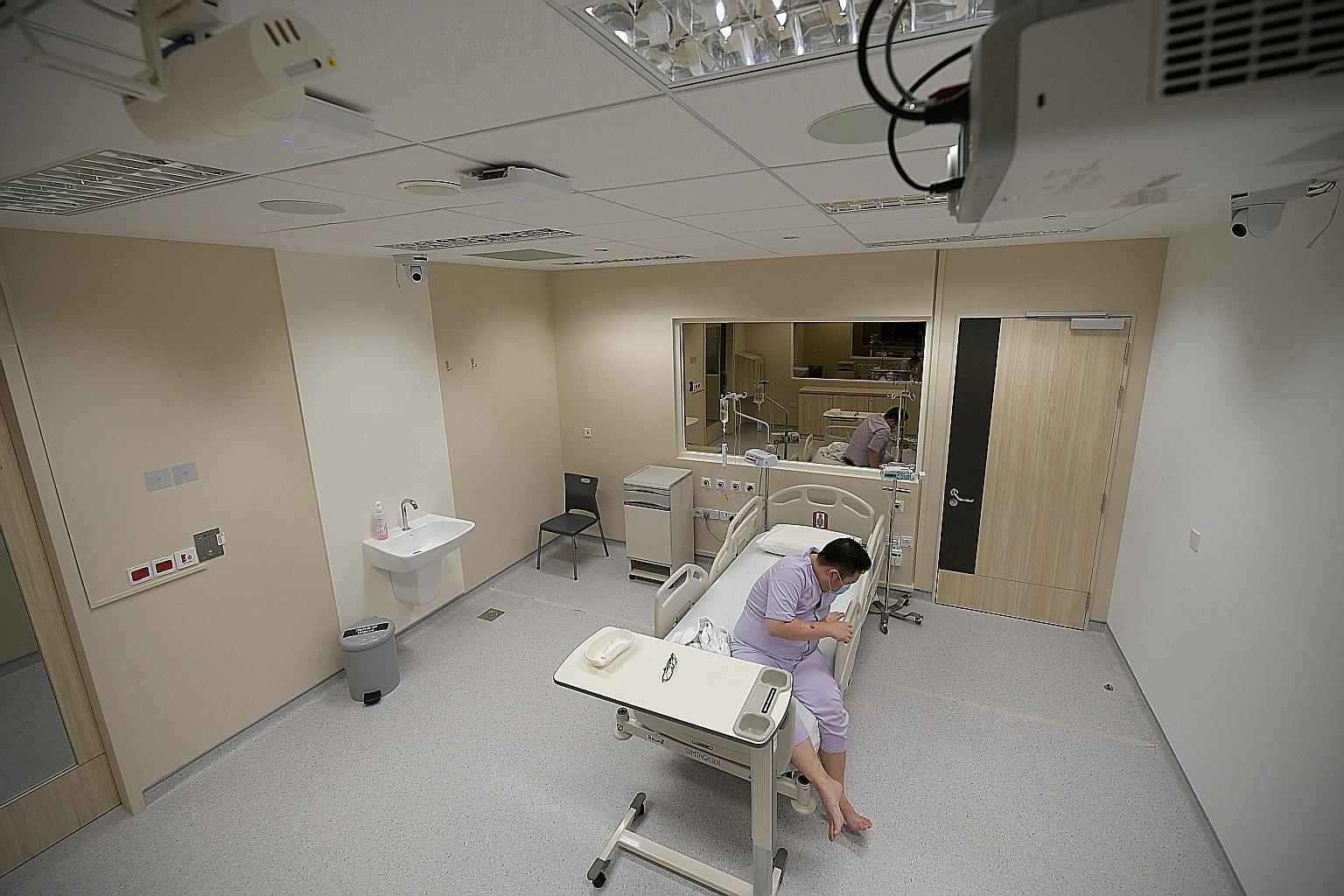Going beyond patient care
AI 'guardians' alert nurses to patients who may be in trouble
Since 2013, nurses at Tan Tock Seng Hospital have been growing a culture of innovation to design and optimise products that can improve the lives of those under their charge. Shabana Begum highlights three recent innovations by the nurses.
Sign up now: Get ST's newsletters delivered to your inbox

As a patient leaves the bed, thermal cameras installed in the patient's room will send an alarm to the nurses' station. There are plans to deploy the system in all single-bed and isolation rooms at TTSH by the year end.
ST PHOTO: NG SOR LUAN
Nurses are trialling a bedside alarm system that allows them to respond to patients more quickly by picking up abnormal beeps from medical equipment.
The artificial intelligence (AI) technology can be trained to recognise sounds that could indicate when machines such as non-invasive ventilators are malfunctioning.
It could prevent a situation where a nurse attending to a patient in an isolation room is unaware of a problem with a patient in another room.
The Bedside Alarm Recognition system is being tested in single-bed rooms of various wards at Tan Tock Seng Hospital (TTSH).
It will set off an alarm outside the room if, for example, it hears a beep from an infusion pump that indicates the drugs being administered to the patient are not flowing into the body properly.
The technology picks up only machine sounds, so patients' privacy is not compromised.
It was designed and developed by the hospital's nursing division and a technology partner.
It is not the only AI-powered device that watches over patients at the hospital.
Thermal cameras installed in the patient's room will send an alarm to the nurses' station when the patient is about to get out of bed.
This can prevent patients from falling because the nurses will reach them before they leave the bed, said Ms Wendy Leong, 41, senior nurse manager at TTSH.
Other common fall prevention tools such as weight-sensing mats on mattresses will be triggered only when patients are out of bed, she noted.
The system, called PreSAGE, was "trained" with more than 11,600 hours of thermal camera data from 80 patients at high risk of falling.
PreSAGE is being used at a ward with 15 single-bed rooms at the hospital. There are plans to deploy the system in all the single-bed and isolation rooms - comprising a total of more than 100 beds - by the end of the year.
Shabana Begum


